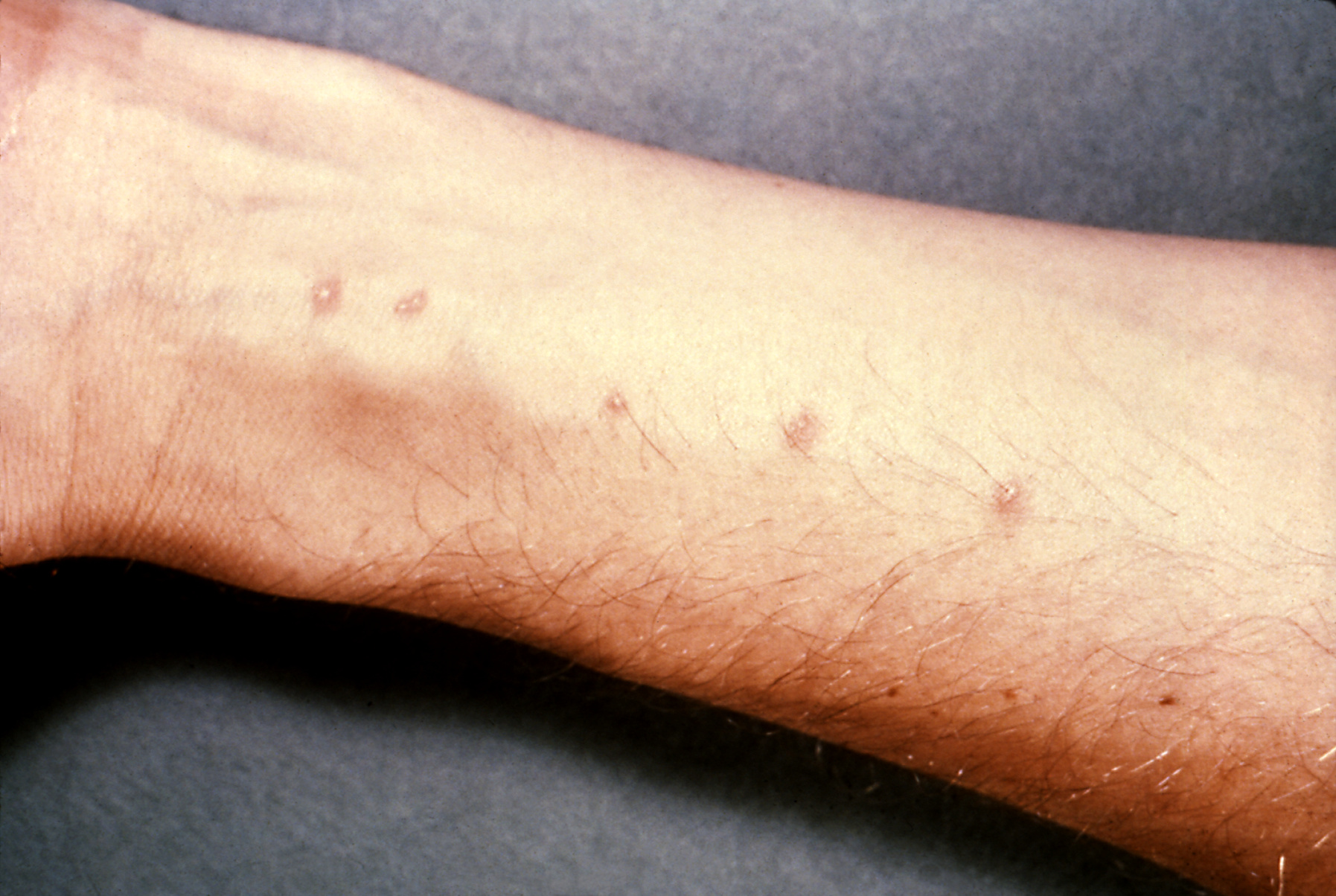MRCP revision battle 14.1: Schistosomiasis
MRCP revision battle 14.2: The clotting cascade
MRCP revision battle 14.3: Factor V Leiden
MRCP revision battle 14.4: Thrombocytopenia
MRCP revision battle 14.5: ITP
MRCP revision battle 14.6: TCA overdose
MRCP revision battle 14.1: Schistosomiasis
Warning... this is a revision topic likely to make you itch...
Schistosomiasis is a parasitic disease caused by flukes (=trematodes.) It is generally carried by snail vectors that release cercariae (= parasitic lavae)
The first sign of infection may be 'swimmers itch'. The MRCP exam may give a history of a patient who has been on holiday to Asia/Africa/South America and has been swimming in a river and is now itchy with a rash. In part 2 there may also be a picture like the one below:
The rash tends of appear within hours of infection and disappear within a week.
The classical presentation of acute schistosomiasis itself occurs roughly 2 weeks after infection with:
- fever
- urticaria
- diarrhoea
- abdominal pain
- cough
- hepatosplenomegaly
The treatment is praziquantel.
If schistosomiasis is not recognised and treated it can become a chronic granulomatous disease (granulomas form around the schistosomiasis eggs). Which parts of the body are affected depends on the type. For the purposes of MRCP the following associations are worth learning:
- s.mansoni - liver disease, transverse myelitis
- s.japonicum - liver disease
- s.haematobium - urinary tract/bladder disease (haematuria)
- --> increased risk of squamous cell carcinoma of bladder
The most practical way of diagnosing is by looking for eggs in stool/urine.
It goes without saying that any question with an eosinophillia in the blood results of someone who has been travelling should raise the possibility of this as a diagnosis.
Now on to the less exotic world of haematology and a recap of the clotting cascade!
